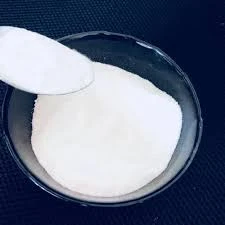
Desemba . 07, 2024 09:24 Back to list
Exploring the Versatile Applications of Hydroxyethylcellulose in Various Industries
Hydroxyethylcellulose Versatile Applications and Benefits
Hydroxyethylcellulose (HEC) is a non-ionic, water-soluble polymer derived from cellulose, a natural carbohydrate found in the cell walls of plants. Its unique properties make it a valuable ingredient in various industries, including pharmaceuticals, cosmetics, construction, and food. The versatility of HEC is largely attributed to its thickening, gelling, and film-forming abilities, which enhance the performance and stability of many products.
Hydroxyethylcellulose Versatile Applications and Benefits
The cosmetics and personal care sector benefits significantly from hydroxyethylcellulose due to its exceptional thickening and emulsifying properties. It is typically employed in products such as shampoos, conditioners, creams, and lotions, where it contributes to the desired texture and consistency. HEC not only enhances the sensory attributes of cosmetic formulations but also improves the application and spreadability of these products on the skin and hair. In addition to its thickening capabilities, hydroxyethylcellulose acts as a film-forming agent, providing a protective layer on the skin, which helps to retain moisture and improve overall hydration.
hydroxyethylcellulose uses

In the construction industry, hydroxyethylcellulose is widely utilized as an additive in cement-based products such as mortars, adhesives, and plasters. Its water-retention properties play a crucial role in ensuring that the mixtures remain workable for longer periods, allowing for better application and adhesion. HEC also helps to improve the flexibility and durability of construction materials, reducing the likelihood of cracking and enhancing the overall structural integrity.
The food industry has also embraced hydroxyethylcellulose due to its thickening and stabilizing properties. It is often used as a food additive to improve the texture and mouthfeel of products, such as sauces, dressings, and frozen desserts. HEC can help prevent phase separation in emulsion-based products, ensuring that the ingredients remain evenly distributed. Its usage in food applications is supported by its status as a Generally Recognized as Safe (GRAS) substance, making it a suitable choice for food formulation.
Furthermore, hydroxyethylcellulose has emerged as an important component in environmentally friendly formulations. As the demand for bio-based and biodegradable materials continues to rise, HEC presents an eco-friendly alternative that can meet the needs of modern consumers. Its renewable nature and low environmental impact further enhance its appeal across various applications.
In summary, hydroxyethylcellulose is a multifaceted polymer that serves a wide range of applications across different industries. Its thickening, stabilizing, and film-forming properties make it a crucial ingredient in pharmaceuticals, cosmetics, construction materials, and food products. As industries continue to evolve and seek sustainable solutions, the demand for hydroxyethylcellulose is expected to grow, highlighting its importance as a versatile and effective additive. Through its various uses, HEC not only enhances product performance but also contributes to the development of safer and more effective formulations that benefit consumers and industries alike.
-
Unlocking the Benefits of HPMC Products: A Gateway to Versatile Applications
NewsAug.07,2025
-
Unleashing the Potential of HPMC Ashland: A Comprehensive Look
NewsAug.07,2025
-
Tile Bonding Cellulose: The Key to Superior Adhesion and Durability
NewsAug.07,2025
-
Hydroxypropyl Methylcellulose Powder: The Versatile Component in Modern Pharmaceuticals
NewsAug.07,2025
-
Hydroxyethyl Cellulose: The Versatile Solution for Various Industries
NewsAug.07,2025
-
Hydroxyethyl Cellulose (HEC): The Versatile Polymer for Various Applications
NewsAug.07,2025







